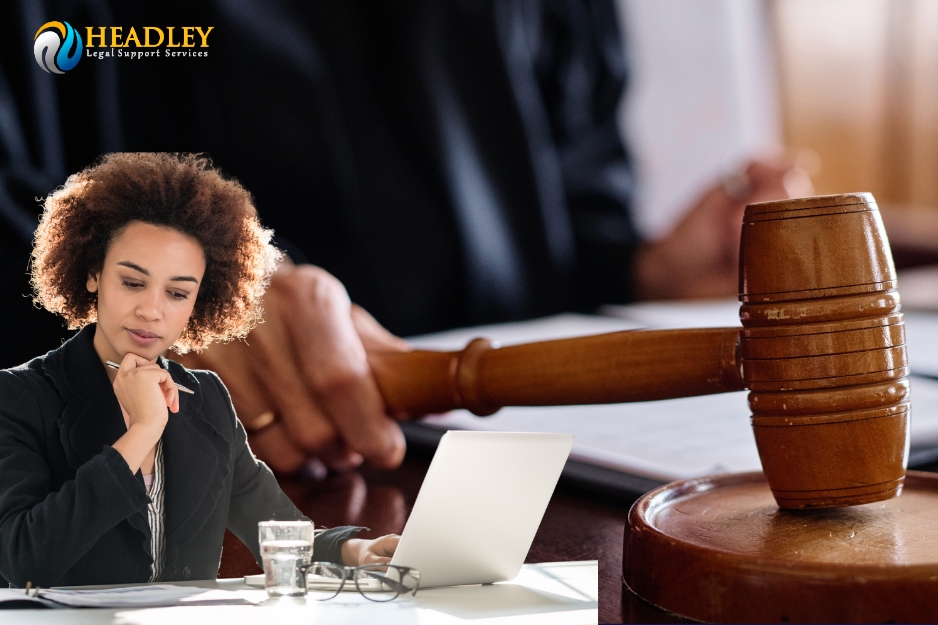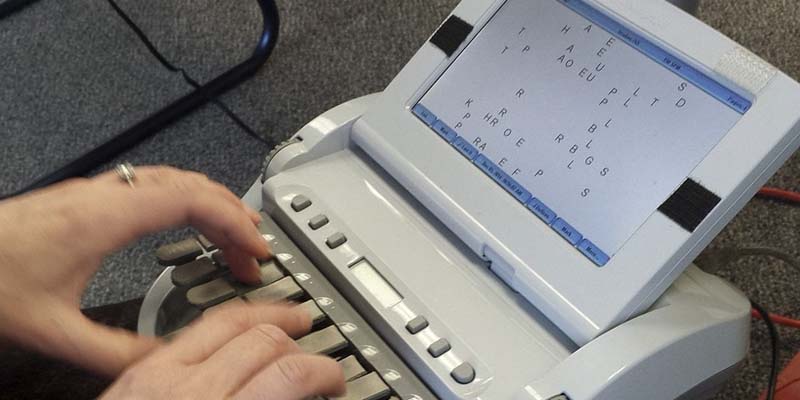What sets durham court reporting apart from national court reporting services
How Court Reporting Works: A Step-by-Step Guide to the Lawful Process
Court reporting is a critical part of the legal system. It entails an organized process that guarantees exact documents of procedures. From preparation to the final delivery of records, each action is vital. Understanding how stenotype reporter run offers insight right into the stability of legal documents. The subtleties of their work can greatly influence legal outcomes, prompting inquiries about the innovations and methods they employ. What are the details methods that define this profession?
The Duty of Court Reporters in the Legal System
Stenotype reporter play a vital function in the lawful system by offering reliable and exact records of court procedures. Their work warranties that every spoken word throughout depositions, tests, and hearings is recorded, which is vital for maintaining a main record of occasions. This transcription is basic for charms, as it permits higher courts to assess the proceedings and figure out if any errors were made throughout the test.
Furthermore, court press reporters assist in protecting the honesty of the lawful process by developing verbatim documents that can be described by lawyers, judges, and other celebrations entailed in an instance. They frequently use specific tools and software program to capture dialogue with precision. Beyond the court room, their records can work as essential historical papers, supplying understanding into judicial proceedings and the legal system's functioning. Eventually, stenotype reporter add significantly to transparency and responsibility in lawful issues.
Planning for a Court Reporting Session
Prep work is crucial for a successful court reporting session, as it guarantees the accuracy and effectiveness of the transcription procedure. Stenotype reporter start by examining instance materials, including pleadings and witness checklists, to acquaint themselves with the terminology and context. They likewise make sure that they have the essential tools, such as steno equipments, note pads, and back-up gadgets, prepared for usage.
Before the session, interaction with lawful teams is essential. Press reporters commonly clarify any particular requests pertaining to formatting or preferred terminology. Furthermore, they may organize to consult with attorneys or witnesses to discuss the proceedings and validate the timetable. Showing up early to set up the tools permits fixing potential technological problems. In general, complete preparation not only boosts the reporter's confidence yet likewise contributes substantially to creating a accurate and clear document of the legal process.

Capturing the Document: Methods and Equipment
Making use of sophisticated techniques and trusted devices, stenotype reporter thoroughly capture the talked word during legal process. They utilize stenography, an approach including a specialized equipment that enables them to kind multiple audios at the same time, thereby recording dialogue in genuine time. This machine, referred to as a steno key-board, is furnished with keys that represent words and syllables, enabling swift and precise input.
In enhancement to stenography, court reporters might use audio recording devices as extra tools. These gadgets offer as backups, making sure that no critical details is lost during process. Some press reporters include software application that improves their transcription performance, providing attributes such as voice recognition and automated format.
Correct positioning and focus are vital; press reporters must preserve interest on all audio speakers, capturing subtleties and inflections that add to the document. Through a combination of ability and modern technology, court reporters support the integrity of the lawful procedure by making certain a accurate and extensive record of occasions.
Recording the Procedures
Transcribing the proceedings requires court reporters to convert talked discussion right into composed text with exceptional precision and rate. This process commonly happens promptly after the recording has actually been caught, making use of specialized software program that enables seamless transcription. Stenotype reporter should listen attentively to the sound, ensuring that every pause, inflection, and word is properly stood for in the transcript.
They frequently count on shorthand systems, personal transcription skills, and advanced modern technology to facilitate this job. The setting in which they work can be occasionally disorderly and busy, as lawful process frequently involve numerous speakers and technological jargon. Court reporters must also keep concentration to record nuances in tone and context that might be necessary for the legal document. Ultimately, the accuracy of the transcription is crucial, as it serves as a certification for future referral in legal procedures.
Evaluating and Modifying the Transcript
The procedure of reviewing and editing and enhancing the transcript is crucial for ensuring accuracy in court reporting. Stenotype reporter typically team up with attorneys to clear up any kind of ambiguities and verify the accuracy of the tape-recorded declarations. This collaboration is important for preserving the honesty of the legal record.
Value of Precision
Accuracy serves as the foundation of reliable court reporting, as even minor mistakes can substantially alter the meaning of legal process. The assessing and editing process is important in making certain that records reflect the spoken word with fidelity. Stenotype reporter diligently verify names, technical terms, and legal jargon to preserve Find Out More precision. This interest to information assists protect against misunderstandings that could affect case results. Precision cultivates trust amongst lawful specialists, customers, and the court, enhancing the honesty of the judicial system. Mistakes can cause disagreements or allures, making it essential for reporters to refine their job extensively. Inevitably, the pursuit of accuracy not just boosts the integrity of the records yet additionally maintains the requirements of the legal occupation.
Collaboration With Attorneys
Cooperation between court press reporters and lawyers is vital throughout the examining and modifying phase of records production. This process guarantees that the last paper precisely mirrors the talked word and complies with legal standards. Lawyers often review records for particular terms, context, and any type of potential mistakes that could influence the situation. Court reporters rely upon attorneys' proficiency to make clear ambiguous areas or highlight critical statements. Reliable communication is vital; attorneys might offer responses or request improvements, which court reporters have to deal with without delay. This partnership not just enhances the top quality of the transcript however also adds to a smoother legal process. Inevitably, collective initiatives result in a reliable and accurate document, important for legal procedures and future referrals.
Providing the Last Transcript to Customers
Upon conclusion of the transcription process, court press reporters meticulously prepare the final paper for delivery to their clients. This last records undergoes thorough proofreading to ensure precision, as any errors can significantly affect lawful proceedings. Stenotype reporter style the paper according to the details requirements Clicking Here stated by the customers or lawful firms, including pagination, indexing, and any type of essential displays.

Finally, stenotype reporter might offer a cover letter summarizing vital details and providing additional help if required. This detailed approach guarantees that clients receive a polished, accurate, and easily navigable records, crucial for their lawful demands.
Regularly Asked Inquiries
What Certifications Are Needed to Become a Stenotype Reporter?
To become a stenotype reporter, people commonly require a senior high school diploma, conclusion of a court reporting program, and accreditation or licensure, depending on state more helpful hints needs. durham court reporting. Effectiveness in shorthand and modern technology is likewise vital for success
How Lengthy Does It Require To Complete Court Reporting Training?
Generally, finishing court reporting training takes in between 18 months to four years, depending upon the program's intensity, the pupil's speed, and the details demands of the jurisdiction in which they desire to practice.

What Is the Typical Wage of a Court Press reporter?
The average wage of a court reporter differs by place and experience, typically ranging from $45,000 to $100,000 yearly (durham court reporting). Aspects such as specialization and demand can considerably influence their profits in different regions
Are Court Reporters Required to Have Accreditation?
Stenotype reporter are generally called for to get qualification, which ensures they have the necessary skills and understanding for exact transcription. Certification requirements can vary by state or territory, mirroring specialist standards within the legal neighborhood.
Can Court Reporters Work From Another Location or Freelance?
Stenotype reporter can function from another location or freelance, providing flexibility in their occupation. Lots of make use of modern technology to record proceedings from various locations, enabling diverse chances in the legal field while preserving a work-life equilibrium.
Court reporters play a crucial duty in the lawful system by giving reputable and precise transcripts of court proceedings. Additionally, court reporters assist in preserving the honesty of the lawful procedure by producing verbatim records that can be referred to by attorneys, judges, and other parties involved in an instance. Making use of innovative strategies and dependable devices, court press reporters thoroughly capture the spoken word throughout lawful proceedings. Court reporters have to additionally preserve concentration to record subtleties in tone and context that may be important for the lawful document. To become a court press reporter, people usually need a high college diploma, conclusion of a court reporting program, and certification or licensure, depending on state needs.